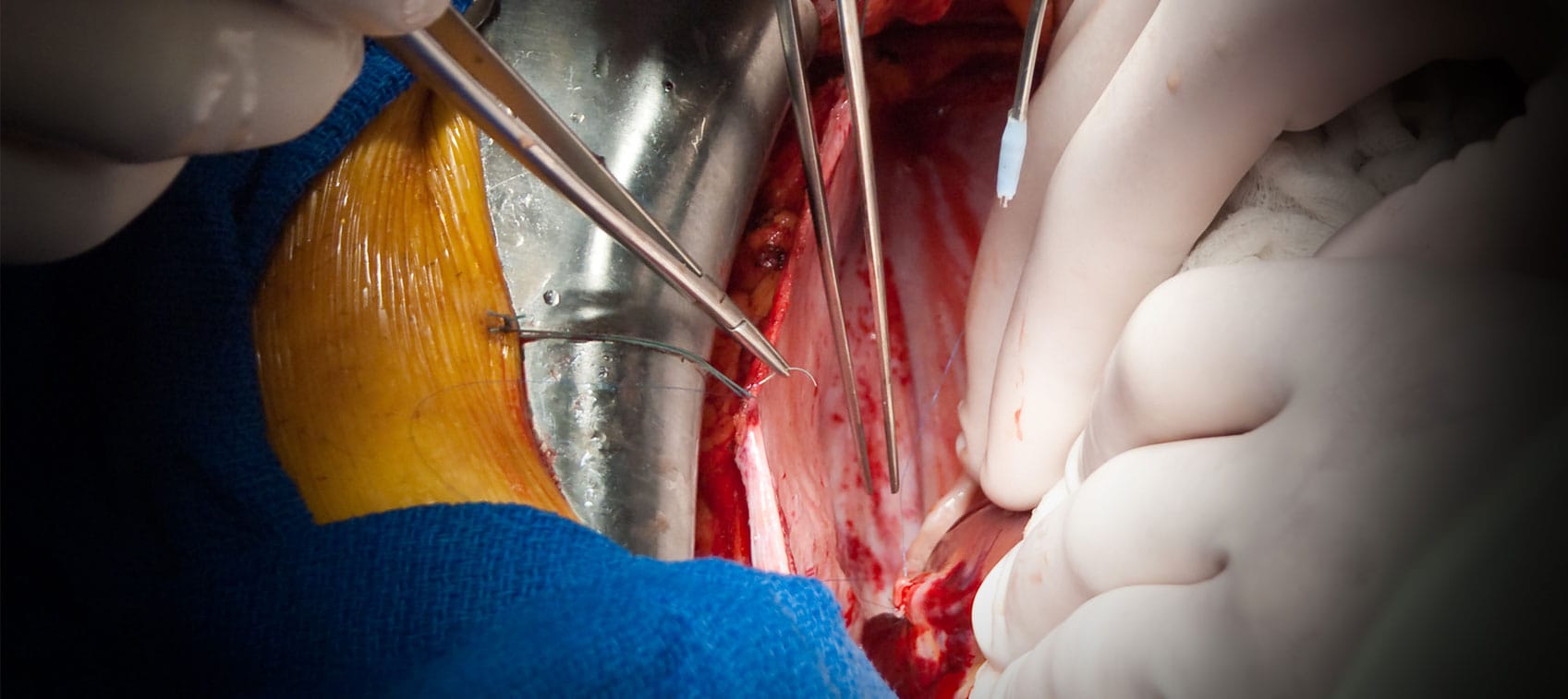
I get questions about coronary artery bypass graft surgery (CABG) all the time. “Should I have bypass surgery? How do I make a decision?"
You go to five different doctors, and you may get five different opinions. My answer, however, is always the same. Having a bypass is all about quality of life.
If you are symptomatic with angina, if you can't walk across the room, if you are short of breath, sweating in the middle of the night, clutching your chest in pain—and you've tried medical therapy, targeted nutritional supplements, and mind-body medicine, it's time to call a surgeon.
Symptoms of heart disease are caused by blockages in the coronary arteries. Bypass surgery opens up blocked blood vessels and restores blood flow. I can tell you from loads of experience with bypass candidates that quality of life soars.
If you do opt for CABG, here’s what to expect.
What Is CABG Surgery?
CABG involves grafting (connecting) a healthy artery or vein from another part of the body to a blocked coronary artery. The goal is to bypass the blockage and open up a new avenue for blood flow. There are three main types of CABG:
- Standard: After the chest is opened to access the heart, you’re hooked up to a heart-lung bypass machine. This keeps blood and oxygen moving through the body while your heart is stopped during the grafting. Once the grafts are in place and blood flow is restored, the heart starts beating again.
- Off-pump (beating heart): In a beating heart bypass, the chest is opened, but the heart-lung bypass machine is not used. The surgeon actually does the surgery on a beating heart. I like this a lot better because it is linked with fewer complications.
- Minimally invasive direct CABG: Rather than opening the chest, the surgeon performs beating heart bypass through several small incisions between the ribs. Not all patients are candidates for this procedure, and it is used less often.
Risks & Complications of CABG
Like any major surgery, CABG can cause pain, bleeding, and infection at the incision site. Some people have adverse reactions to anesthesia. Others experience cardiac arrhythmias, pericarditis (excess fluid in the pericardium surrounding the heart), pleural effusions (fluid buildup in the chest), or kidney problems.
The most devastating complications are stroke, heart attack, and, of course, death. It’s hard to pin down the exact numbers, but a 2019 study in The Journal of the American Heart Association found that 1.3 percent of CABG patients had a stroke.
The heart-lung bypass machine presents problems of its own, which is why I prefer off-pump CABG whenever possible. A lot of patients develop confusion and depression, even six months or a year following surgery. Although it often resolves with time, memory and mood problems may be enduring.
CABG risks are higher for patients who undergo emergency surgery or have three or more grafts. Coexisting conditions such as chronic lung or kidney disease and advanced age also increase risk of complications.
CABG Surgery Recovery
Most patients spend a day or two in the intensive care unit following CABG and another three to five days in the hospital. Once you are home, you’ll have to take it easy as your incision and breastbone heal. You’ll likely feel tired and weak and experience some pain, which can usually be managed with over-the-counter pain relievers.
It is important to stay active. Most patients benefit from a cardiac rehabilitation program that includes a structured exercise program, diet and lifestyle counseling, and help managing stress, anxiety, and depression, which are extremely common following bypass.
Make sure you stay on the medications prescribed upon discharge and follow up with your doctor as instructed. You can expect to start feeling back to normal and resuming things like driving and sexual activity in four to six weeks. Most people return to work after six weeks. Full recovery, however, may take 12 weeks or longer.
CABG Precautions to Avoid Readmission
Another question I often get is what can be done to prevent readmission to the hospital and subsequent cardiac events. Of course, you should follow your doctors’ orders, but my biggest successes with patients with any heart issue have come from pairing conventional treatments with integrative therapies.
- Diet: A strict heart-healthy diet is essential. When you take in too much salt, you absorb water—and much of the sodium we eat is “hidden” in processed foods. Maintaining a proper salt-water balance is critical for driving down hospital readmissions. Another dietary risk factor is alcohol, which is a depressant for the myocardium. It’s important to limit (or better yet, eliminate) alcohol.
- Supplements: My “metabolic cardiology” protocol of coenzyme Q10, D-ribose, L-carnitine, and magnesium, as well as omega-3s (fish oil) has been instrumental in helping to prevent arterial reclosure and plaque rupture in my patients.
- Emotions: Another hidden risk factor in hospital readmissions is emotions, which can put you into fight-or-flight mode and precipitate a cardiac event. I had one patient who developed serious problems while watching a basketball game! Even something as innocuous as this can cause emotional arousal, tipping patients over the edge with an influx of hormones (adrenaline, norepinephrine, etc.). I tell my patients they need to just let a situation go—it’s not worth dying for. If you need help in this area, get counseling.
- Optimism: A study conducted at Carnegie Mellon University showed that optimism is an extremely important healer. The researchers concluded, “Optimism predicts a lower rate of rehospitalization after coronary artery bypass graft surgery. Fostering positive expectations may promote better recovery.”
It’s All About Quality of Life
When it comes to bypass, it's all about symptoms and quality of living. If your quality of life is unacceptable and you can't live with your cardiovascular symptoms, then by all means have a bypass—and enjoy your life!


